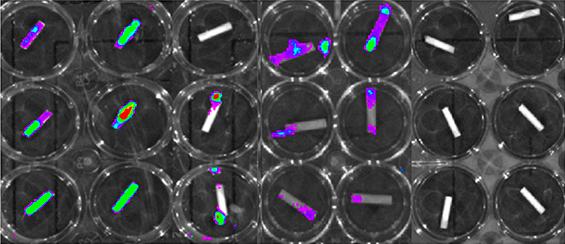Polymer catheter coating kills infection-causing bacteria
Date: 11.3.2019
Hospital-acquired infections are a serious problem, and the most common type of such infections occurs when catheters are inserted into blood vessels. A new coating, however, shows promise for killing bacteria at insertion sites, keeping them from establishing biofilm colonies on the catheters.
 Developed at Rhode Island's Brown University, the coating was created by first dissolving polyurethane and concentrations of an antibacterial drug known as auranofin, then mixing them into a solvent solution. The resulting liquid was subsequently applied to a catheter, after which the solvent was evaporated away. This left a durable polymer coating behind, which can stretch by up to 500 percent without breaking.
Developed at Rhode Island's Brown University, the coating was created by first dissolving polyurethane and concentrations of an antibacterial drug known as auranofin, then mixing them into a solvent solution. The resulting liquid was subsequently applied to a catheter, after which the solvent was evaporated away. This left a durable polymer coating behind, which can stretch by up to 500 percent without breaking.
In lab tests, catheters treated with the coating were placed in solutions and on glass plates, in which harmful methicillin-resistant Staphylococcus aureus (MRSA) bacteria was present. For up to 26 days, the coating gradually released auranofin, inhibiting MRSA growth on the catheter – this kept the bacteria from forming difficult-to-remove biofilms.
By contrast, when a traditional antibiotic was tested under the same conditions, it was unable to keep biofilms from forming. What's more, because auranofin isn't an antibiotic, there's no risk of its use leading to the development of antibiotic-resistant bacteria.
Tests additionally indicate that the coating has no adverse effects on human blood or liver cells, although further research will be required before human trials can begin.























